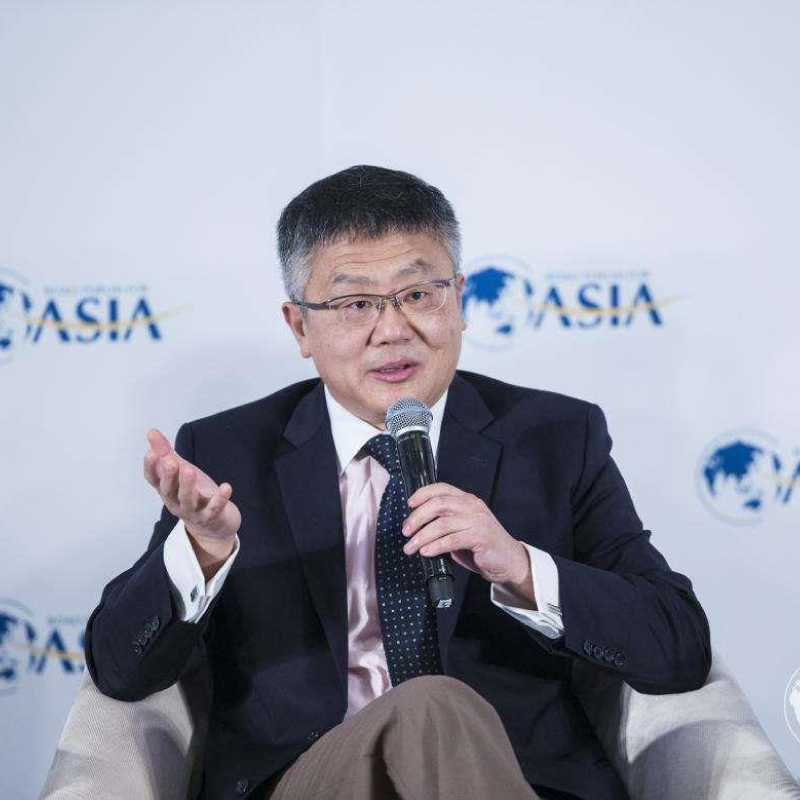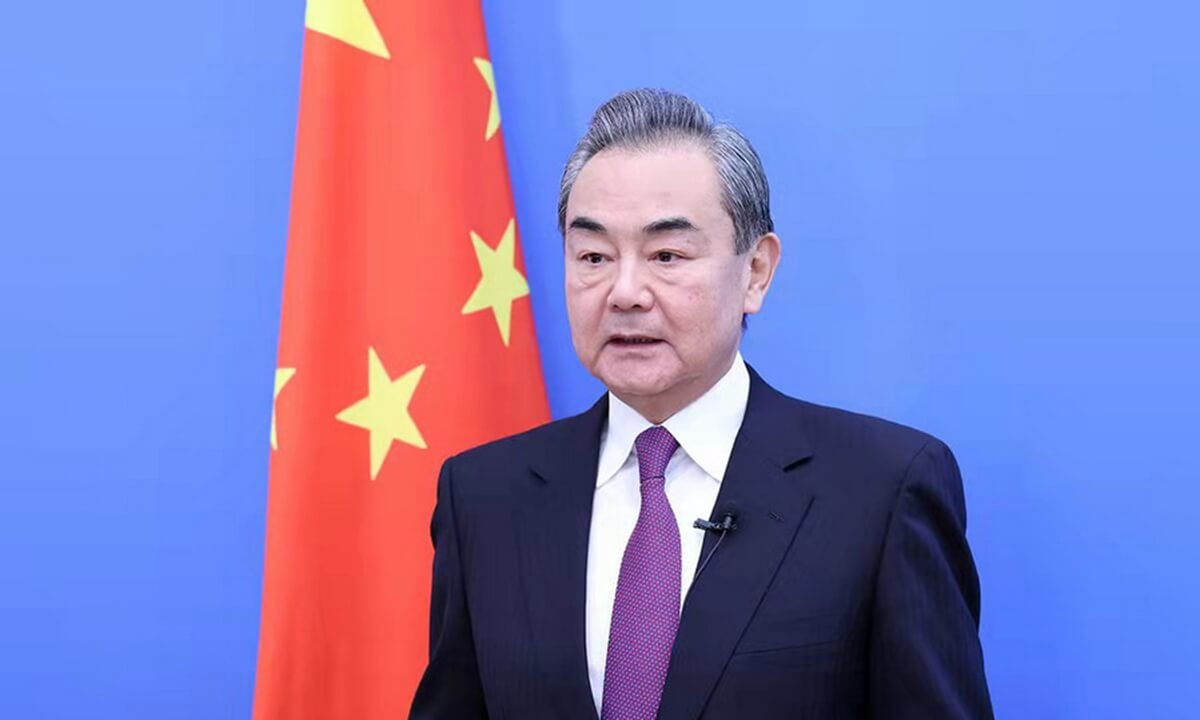
Since President Joe Biden took office, his administration has substantially strengthened the blockade against China’s high-tech industries, focusing on the chip industry, in a bid to curb China’s development and ensure the US dominance in the high-tech field. In recent years, the US has made a series of bills and policies on chips, aiming to throttle China’s chip industry – the crown of the high-tech industries. This all-out chip containment is so tough and thorough that the US mainstream media has called it as a “chip war” against China.
However, the US chip war against China is hardly sustainable. First and foremost, despite the US’ endeavor to “de-sinicize” the high-end of the chip industry, the industry itself has been the most thoroughly globalized. Every component part of the chip industry – R&D, incubating, manufacturing and marketing – is deeply embedded in a globalization process. Therefore, one of the necessary conditions for the US to win the chip war is to rebuild the industrial and supply chains according to a design and arrangement based solely on its own security interest, rather than the rules of a market economy. But that is hardly feasible. China’s economy has long been an integral part of the world economy. Adhering to the reform and opening-up policy, the Chinese government will continue to fully embrace and promote economic globalization and integration. Moreover, economic globalization is not the product of any state strategy or policy, but the result of relentless pursuit by market forces for the optimal resource allocation, highest production efficiency and maximum profits. Given that capitalist market economy is the foundation of its statehood, the US is actually shooting itself in the foot by waging the chip war against the very laws of the market economy. In this sense, the largest hindrance for Biden’s attempt of decoupling with China comes exactly from the Wall Street capitalists and multinational chip companies.
Second, the five sectors involved in chip manufacturing – R&D, (raw) materials, software, tools and processing – are all globalized. For China, the so-called stranglehold mainly happens in materials and tools, which are also the two highly globalized areas. It would be highly difficult, if not entirely impossible, for the US to fully strangle China but to force the other countries, especially its allies, to join the chip war against China. It is true that the US has been substantially successful in aligning the major players in the chip industry in this action, such as those in Japan, the Netherlands, South Korea and Taiwan, but this anti-China alignment is at best a leaking one, as major chip makers as well as their subsidiary companies have all maintained their business relations, covertly or overtly, with China. The US, on the other hand, has already paid a painful price because of the self-imposed sanctions, and this price is expected to increase down the road.
Third, for the four major steps involved in chip manufacturing, namely R&D, incubating and product conversion, industrial manufacturing and marketing, China has a prominent advantage and virtually irreplaceable position in the last two steps, especially marketing, while the US holds the cutting edges in the first and second steps. The first three steps call for gigantic investment, or the so-called “cash burning”. Only in the last step can profits be reaped; then (a part of) the profits can be reinvested into the first three steps, so as to complete the entire business cycle. Obviously, shortage in manufacturing capability and insufficient market scale brought by the “Small Yard, High Fence” policy are the Achilles’ heel of the US chip war against China. On the contrary, China is unparalleled in manufacturing capability, especially when it comes to the market size, in terms of both scope and degree of market integration. This is also the reason why multinational chip companies are very anxious of being enlisted in the “Small Yard, High Fence” policy; and even if they are trapped by this policy, they try every means to find ways to keep connected with China, where there is the market in scale they cannot afford to lose. After all, subsidies and investments alone can hardly sustain the development of chip industries, not even by the mighty US. Borrowing the famous line from President Bill Clinton: it is the (market) economy, stupid!
Fourth, China’s countermeasure is completely opposite to the US moves. Adhering to the reform and opening-up policy, China endeavors to overcome the blockade by maintaining and further expanding industrial and supply chains in accordance with market forces and through further opening up in a fashion win-win cooperation. Moreover, the gap in human intelligence and technology is only a difference in degree, rather than a difference in kind. After all, humanity share common intelligence and talents. Historically, the countries, such as Britain, France and the Netherlands, that underwent the Industrial Revolution in the first half of 19th Century had tried to imposed comprehensive technological and industrial restrictions on the US and Germany, but failed to prevent the latter from developing into rising powers or even dominant players in industrial development. Take China’s own development for example. Breakthroughs have been achieved without exception in the areas that have been blocked most severely since the founding of the Republic in 1949. Moreover, once the breakthrough is achieved, Chinese products quickly gained competitiveness compared to their foreign counterparts. For its own interst, the US should not lose sight of the previous lessons.
Lastly, the chip war waged by the US in the name of security is essentially a zero-sum game based on unilateral thinking. Through the chip war, the US is seeking to secure its own benefits at the cost of others, including its own allies. By its own nature, economic exchanges and trade involve a positive-sum game, which brings about benefits to all parties involved, hence is an integral part of a market economy. As long as China maintains its strategy of peaceful development and opening up, breakthrough is surely to happen, and the chip war will eventually be unsustainable. In fact, even from the perspective of security, it makes little sense that wall-building can bring about security once and for all. The very action of building a wall to encircle oneself in manifests the builder’s lack of confidence and courage to compete with others, and this is essentially an attempt to escape from competition. Such mentality will only weaken the wall-builder’s own competitiveness. China has learned this lesson the hard way. In thousands of years of history, the Great Wall never secured the dynasties behind the wall but weakened them to such a degree that they could hardly stand up against the intruders from the outside of the wall. For this reason, today’s China will never relapse into the disastrous practice of wall-building.
Distinguished Professor of Shanghai International Studies University
Source: Briefing Notes on the United States and the Asia-Pacific Region











